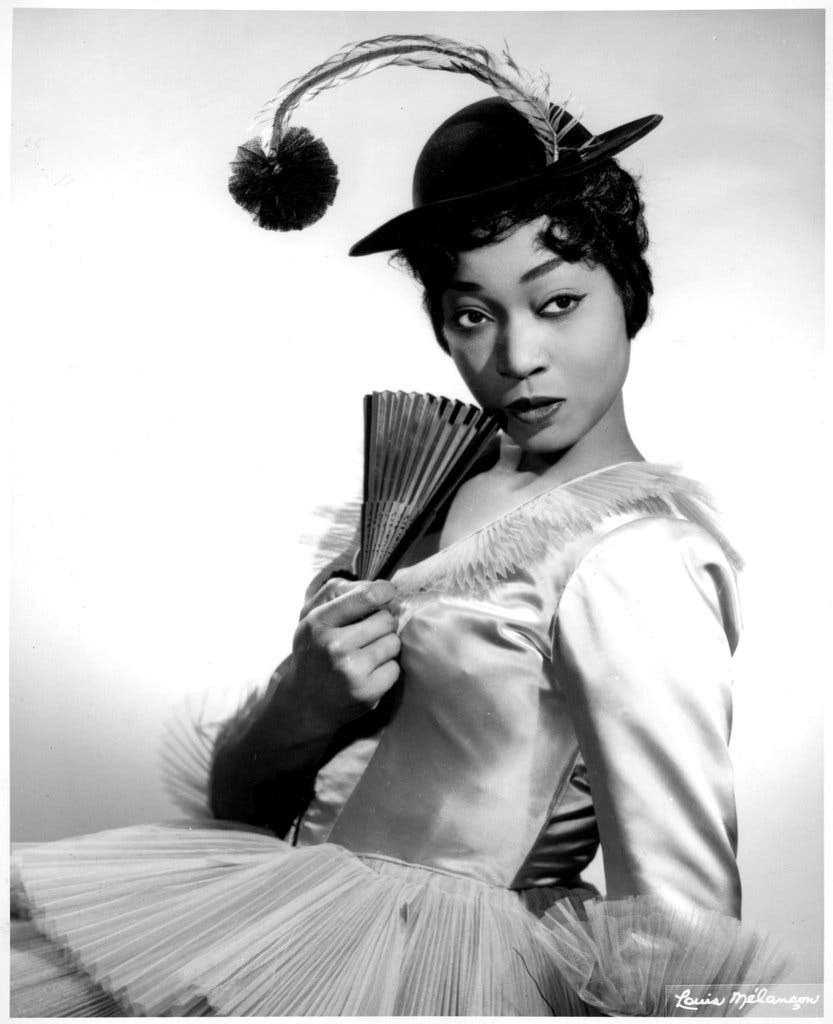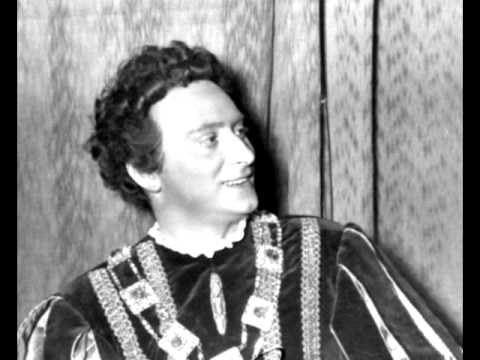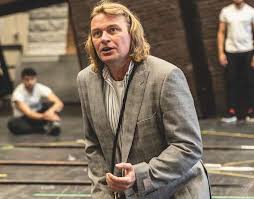|
SATURDEE OPRY LINKS 53: Blow
the Roof Off The Dump Edition
  
Gloria Davy, first African-American to sing "Aida" at the Met.
Forgotten tenor Gino Penno
Klaus Florian Vogt
Saturdee Opry Links Overture!
"Die Feen" ("The Fairies") by Wagner.
https://www.youtube.com/watch?v=TBtolB4riEk
1.
Blow the roof off the dump, why don't you? Here is Javier Camarena (up and
coming lyric tenor) with all nine high C's from "A Mes Amis," aria from "The
Daughter of the Regiment," by Donizetti. "Ah, my friends!"
https://www.youtube.com/watch?v=hC5dDVYJzZw
Tonio, a Tyrolese peasant in love with Marie in 1815, has been made a member of
the French Grenadiers. He approaches some of the members and explains that he
has joined the regiment only because he loves the regiment's "daughter"
Marie.Tonio sings his joy at finally being united with his one love. He promises
to take care of her and protect her forever.
Translation:
http://www.aria-database.com/search.php?individualAria=783
2.
The greatest Wagnerian tenor you have never heard of: Klaus Florian Vogt. He
started out as a French horn player in the Hamburg Philharmonic until someone
pointed out that he could sing rather well. He's not a heldentenor (heroic
tenor), as he possesses a brightness of tone---where many heldentenors have a
dark, burnished quality. Opera News described his voice as "arresting,
giving the note an intensity and concentration that immediately encapsulates his
character." So this proves you don't have to be helden to sing
heroically, I guess. . .Here he is with the surpassingly beautiful "Allmächt'ger
Vater" ("Rienzi's Prayer") from Wagner's (pre-megalomaniacal) early opera,
"Rienzi." Based on an early ancestor of mine. By the way, Vogt says he hopes to
become the first modern "Siegfried" to play the role and the French horn in the
eponymous opera.
https://www.youtube.com/watch?v=mnygZ9sxnCQ
Summary:
Cola Rienzi, Roman tribune, has been excommunicated for leading a force of Roman
citizens against the treacherous Roman nobles, prompting everyone to abandon
their support of him. On the brink of disaster, Rienzi prays to God that he
might be given strength to weather the crisis. He feels that he is doing God's
work by empowering the common citizen.
Translation:
http://www.aria-database.com/search.php?individualAria=1269
3.
Today's quickie grab-bag edition of Saturdee Opry Links shifts to the recently
departed Dmitri Hvorostovksy with some Russian folk brooding---that is somehow
inspiring, uplifting. This is "Kak molodiy my byli" ("How Young We Were") from a
concert in 2003. With Anglais subtitles. He loved these songs deeply, and it
comes across.
https://www.youtube.com/watch?v=QCPufE8AeMg
4.
Blow the roof off the dump again, why don't you? Here is the forgotten tenor,
Gino Penno, in one of the glory moments of his life: on stage at La Scala in
1953. Not the greatest tenor ever, or the second-greatest, or third, but rising
to the occasion with gusto and aplomb. His pitch might not be spot-on, but
judging by the crowd reaction, he did enough things right. He would be gone from
opera stages in just a few yeas.This is "Di Quella Pira" from "Il Trovatore" by
Verdi. "These terrible flames. . ."
Summary: Manrico, an officer in Prince Urgel's army and the supposed son of the
gypsy woman Azucena (got that?), is in a room adjoining the chapel at Castellor,
1409. He has discovered that his mother Azucena has been captured by the Count
of Luna and is about to be burned at the stake. Furious, Manrico calls together
his soldiers and sings valiantly of how they will save Azucena from death.
https://www.youtube.com/watch?v=vZ9WG9gjx4o
Translation:
http://www.aria-database.com/search.php?individualAria=514
Short but brilliant career, says Wiki:
https://en.wikipedia.org/wiki/Gino_Penno
5.
Here is a Saturdee Opry Links favorita. . .Luciano and Placido on stage in 1991,
singing the ever-tender duet from Puccini's "La Boheme," "O Mimi tu piu non
torni" ("O Mimi, you won't return.") What it might lack in nuance it makes up
for in. . .Luciano and Placido.
https://www.youtube.com/watch?v=jSxs6R6eeS4
Translation:
http://secretworld79.blogspot.com/2010/09/la-boheme-o-mimi-tu-piu-non-torni.html
6.
Live on stage in his only filmed concert performance, here is Mario Lanza, late
in his short life, singing "E Lucevan le Stelle" ("And the stars were shining")
from Puccini's "Tosca." Note: he was suffering from very painful phlebitis in
both legs, but the nervous shifting from side to side that marked this (London
Palladium) appearance all but disappeared when he sang this aria. Such was his
all-consuming focus.
https://www.youtube.com/watch?v=oMLmsQPpNuE
Mario Cavaradossi, Tosca's lover, a young painter and a political liberal,
trades his last possession, a ring, to get a guard to take a letter to the
imprisoned Tosca. As he writes the letter, he sings of his love for Tosca and
for life.
Translation:
http://www.aria-database.com/search.php?individualAria=305
7.
Born in Brooklyn, soprano Gloria Davy was the daughter of immigrants from the
island of Saint Vincent in the Windward Islands---presumably a place that our
fake president would not favor. Ms. Davy's father was a token clerk in the New
York City subway system, yet somehow helped to put her through Julliard, where
she earned a degree in vocal performance in 1953. She was the first
African-American to sing "Aida" on stage at the Metropolitan Opera, and had a
distinguished singing and recording career (though today is largely eclipsed by
Leontyne Pryce, as damn near anyone would be.) Here she is with "Tacea la Notte
Placida," from Verdi's "Il Trovatore" ("The Troubadour.") This aria is marked by
a repeated welling, rising passage that is characteristic Verdi melody. "The
night was still and quiet. . ."
https://www.youtube.com/watch?v=DXzvZUGa5KQ
Summary:
Leonora, a lady-in-waiting for the Princess of Aragon in 1409,
reveals to her servant, Ines, that she heard someone serenading her in the
garden. Yet when she goes out to see who the troubadour is, she finds that it
is, in fact, a knight in black armor who she had once crowned as the champion of
a tournament. She quickly fell in love with him.
Translation:
http://www.aria-database.com/search.php?individualAria=506
8.
Blow the roof off the dump, why don't you, part 3. Here is the great mezzo of
our time, Elina Garanca (El-een-ya Gar-AN-sha) of Latvia (another place our fake
president probably does not approve of), with the tour-de-force, "O Don Fatale,"
from Verdi's "Don Carlo." Fireworks aside, this aria has strange, dark,
bittersweet downturns of melodiousness that are deeply moving. Entirely right
for an aria of guilt, self-loathing, and nobility. Hang on to your hats, boys
and girls.
Summary:
Princess Eboli, lady in waiting to the Queen of Spain in 1559, has betrayed her
Queen and friend Elizabeth because her advances to Carlos have been rejected. In
retaliation, Elizabeth gives her the choice of being exiled or becoming a nun.
After she leaves, Eboli curses the gift of beauty that she has been given,
saying that it has been the cause of all her problems! She swears to save Carlo
from the imprisonment that has resulted from her betrayal.
https://www.youtube.com/watch?v=QN6jrbmnELA
Translation:
http://www.aria-database.com/search.php?individualAria=569
9.
You hear a little Elina Garanca, and you want to hear more. Don't you? Here is
the beguiling mezzo with the beguiling aria, "Io son l´Umile Nncella" ("I'm but
the humble servant.") From the opera, "Adriana Lecouvreur," by Francesco Cilea.
There is something almost ethereal about this inspired melody, something almost
threatens to fly away and leave all harmonic logic behind, before the composer,
Cilea, brings it back to earth. Such a wonderful idea expressed here---one
completely at odds with most of the narcissistic sensibilities of our
"icon"-saturated time---that an artist is only a vessel through which the muses
work.
https://www.youtube.com/watch?v=O_S9SAfGN9o
Summary:
Adriana Lecouvreur is the star of the Comédie-Française
Paris, 1730. The Prince de Boullion and the Abbe de Chazeuil meet the company at
the Comédie-Française before the show. Although the Prince is the patron of
Adriana's main competition as an actress, Duclos, he compliments Adriana. She
replies to the compliments by saying that she is only the vessel through which
the muses work.
Translation:
http://www.aria-database.com/search.php?individualAria=1109
FINAL BOW:
Marilyn Tyler died Dec. 21 at age 91. Ms. Tyler had a highly successful concert
career with the best orchestras and conductors of the world, spanning 25 years,
though she is probably little remembered today. From her obituary:
"In the 1970s, Tyler served as director for the newly-established Iran Opera in
Tehran, created by Empress Farah Diba. With the Iranian Revolution in 1979,
which resulted in the downfall of the royal family, Tyler spent the next nine
months in Iran before she was able to escape into Pakistan, where she would find
employment with the U.S. Information Service’s Pakistan-American Cultural
Center. Following an attack on the U.S. Embassy two years later, Tyler returned
to the U.S., where she would teach at the University of New Mexico from 1983
until her retirement in 2011."
Here is Ms. Tyler and her hearty, expressive voice, with Gershwin's "Summertime"
from "Porgy and Bess." Accompanying herself at the piano in a performance for
Dutch television in 1962.
https://www.youtube.com/watch?v=S5yXU9jcTTQ
Saturdee Opry Links Encore!
"Besame Mucho." The Beatles. Paul McCartney, tenor, accompanies himself on
keyboard and marijuana.
https://www.youtube.com/watch?v=QI7UbuhMTbY
Back to Opera Links
Back to Home Page
|



